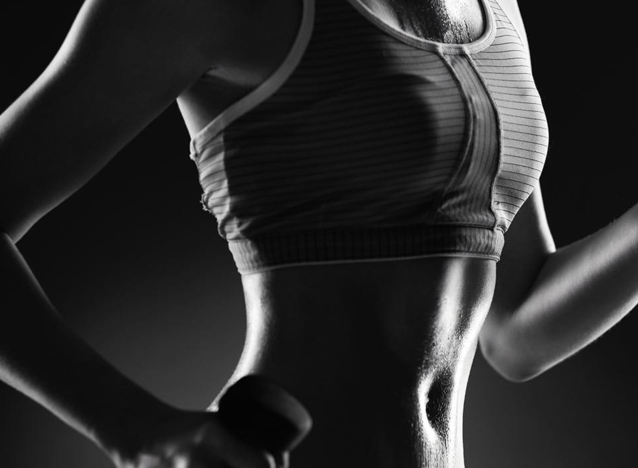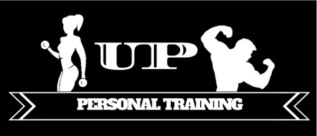Nutrition and Dietary
You are what you eat...
What you eat is what you are. I can help advise you on your diet and help you to make changes if you need to. I can help you lose weight, gain weight or
change your muscle to fat ratio. If you eat well, you will be healthier and have more energy.
Over weight or under weight
when you start a training program, I will help advise you on your diet and eating plan. With regular exercise and a healthy diet, it
becomes easier to control your body weight. As your body burns more calories, you can adjust the food you eat to your needs. By balancing your energy expenditure with the food
you put in we can help control your weight, whether you are over or under weight. I aim to help you to enjoy eating as part of your healthy lifestyle.
The Breakfast Club
Breakfast is one of the most important meals of the day. If someone were to suggest to you that as part of your regular nutritional intake you should go without food for 15 to 16 hours regularly you
would almost certainly consider them a crank. However, for a lot of people in the UK this is the regular eating pattern. The main meal of the day is often the evening meal at about 7pm. They then
drink coffee or tea in the evening, go to bed and get up the next morning. There is time for a quick cup of coffee or tea and then straight out the door. Once in work by the time 10 or 11am comes
around they have got the munchies. At this point they will either grab a chocolate bar or perhaps a bag of crisps. This is because the body requires glucose because breakfast was missed; sweet and
fatty snacks are calorie dense and so fulfil this need.
Weight management
From a weight management perspective breakfast is very important. Studies have shown that individuals who habitually eat breakfast
tend to maintain a steady body weight. This may well be because their blood glucose levels are elevated and so they feel more satiated. The eating centre in the hypothalamus monitors blood glucose
levels and uses any drop in blood glucose as an indicator that food is required. By maintaining a steady blood glucose level you don't feel as hungry.
Eat Before or after training?
A lot of people are unsure whether they should eat breakfast before or after training. The answer to this question is both, before and
after. If you are an early morning trainer you should try to take on some CHO before you start training. Ideally a low Gl meal a couple of hours before training is a good rule of thumb. This may not
be practical if you are getting up and going straight to the gym. In this scenario try taking on some CHO before you start training. If you find that you cannot tolerate food then fruit juice will at
least provide you with some CHO. Failing that, consume a sports drink before commencing training and then drink another one throughout your session.
This becomes even more significant if you train more than once a day as there will be very little opportunity for your muscles to recover their glycogen stores before you commence your next training
session.
Breakfast is important for everybody and even more so for a training athlete or somebody who leads a hectic physical and mental schedule. The word breakfast means just what it says — 'Break the
Fast'. Make sure that you do
Nutritional tips
- Drink Water - Water flushes and lubricates the body. In sufficient amounts it will assist in increasing energy and combined with oxygen, will help in burning fat during aerobic exercise. Water is the environment within which every chemical reaction occurs within the body. A 2% reduction in body weight as water will seriously effect performance, whilst a 5% reduction can prove fatal.
- Keep a food diary - Jot down everything you eat and drink over a 14 day period. Be honest, as you are the only person who will see it. This will hopefully raise your awareness about what you are actually eating compared to what you think you are eating.
- Eat properly - In order to stay healthy your diet must contain adequate amounts of proteins, fats, carbohydrates, vitamins, minerals and salts. The present research advises 10 - 12% protein, 30 - 35% fats and 55 - 60% carbohydrates. Although the ratios can alter depending on what fitness goals are, i.e. gaining muscular weight, losing weight.
- Avoid diets that do not work! - At the last count there were about 600,000 books and publications to do with diets. The problem with many of these is that initially they may work and you may lose weight. But bear in mind though that the reason why this is such a thriving industry is because many people lose weight very slowly or not at all. Then they go on low calorie diets, in fact their weight can go up. The body, in response, thinks your trying to starve yourself and slows down your metabolism and you put on more weight as a consequence and the cycle is repeated .THIS IS YO YO DIETING
- Cut out eating carbohydrates at night - Weight training requires glycogen, which is derived from carbohydrates, as a fuel source. Eating carbs at night, especially just before you sleep increases your risk of storing fat, as you burn only small amounts of sugar or glycogen whilst sleeping.
- Eat more fibre - It is not only good for the digestive system but it also helps in reducing fat as it slows down the entry of carbohydrates into the bloodstream. This means there is also less sugar entering the bloodstream, which in turn initiates a slower output of insulin. Thereby favouring fat burning rather than fat hoarding.
- Dining out - Avoid ordering alcohol before you start your meal. Alcohol often increases your appetite and decreases good intentions. Consider even splitting an entrée e between yourself and partner.


